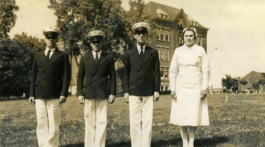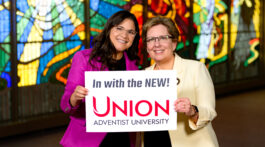Sabbath School Lesson for May 1-7, 2021
For videos about the lesson on Tue, Wed, and Thu, see https://www.youtube.com/teresathompson
Livestreaming on those days at 3 p.m. CST from the Facebook group “The Teacher’s Notes on the Sabbath School Lesson”
Overview of Lesson 6
There are many aspects of Abraham’s seed that we examine this week. We find that his descendants…
- were “above all people” (Sunday)
- had obligations to fulfill in order to inherit the land (Monday)
- they often fell away from God and broke their special covenant relationship with Him (Tuesday)
- a remnant was always left to keep the covenant promise alive (Wednesday)
- there is now a faithful body of believers called “spiritual Israel” (Thursday)
Ancient Israel’s geographic location was significant in enabling it to influence a good share of the then-world population. Ezekiel 5:5 tells us Israel was “in the midst of the nations”. It was strategically located in the middle of three big continents: Africa, Europe, and Asia.
Being a bridge between these major civilizations has caused some to think of it as the spiritual “clock” of the world. People were able to measure their spiritual journeys by the standard set by the tiny nation of Israel.
Other descriptors of Israel were brought out in our memory text this week, 1 Peter 2:9.
Memory Text: “But ye are a chosen generation, a royal priesthood, an holy nation, a peculiar people; that ye should shew forth the praises of him who hath called you out of darkness into his marvelous light.” 1 Peter 2:9
From this verse, we can see that God had grand purposes and a divine mission for the people born from Abraham. The descendants of this faithful man would constitute the “family” that would welcome the Son of God at His birth. What a holy honor was theirs, if they remained close to their heavenly Father.
Sunday: “Above All People…”
We may wonder why God would take such a small group of people, without any significant talent or cultural prestige, and expect them to be ambassadors of His Kingdom.
There was nothing in their own selves to qualify Abraham’s seed for the tasks of their mission. But, with God’s help there was everything available to equip them for their holy purpose. They only had to be willing vessels and allow God to fill their hearts and shape their characters.
There was a danger, of course, that God’s people would become prideful of their elevated status. It was important that God would remind them of their holy purpose and that they were indeed more valuable to Him than all the peoples and nations around them. From time to time, He repeated His intention to make them special and holy.
Unfortunately, there were some, and often a majority, who relished too highly their special status with God. We, too, must be cautious of becoming proud and boastful of our usefulness to God. We must constantly remind ourselves that God doesn’t need us, but we most definitely need Him.
Bible Verses to Read and Discuss:
Deuteronomy 7:6 and 1 Peter 2:9
- What made Israel special to God? Why did He choose them above other nations in the region?
- How did God feel about the other nations?
Ezekiel 16:8
- What was Israel’s condition when He found her?
Revelation 3:15-18
- What does it mean to be spiritually naked?
- How did God detect their lukewarm state? (verse 15)
- What kind of “works” does God look for in His people?
Monday: Land Deal
More and more details of God’s covenant were revealed to Abraham over the years. In Genesis 15:13, 16, he was shown that their actual possession of the land would be quite a ways into the future. Four hundred years, or four generations, would have to pass before the land would indeed be theirs to inhabit.
This pause in possession, of course, took place during their years of slavery in Egypt. It was revealed to Joseph, on his deathbed, how this possession would finally be a reality (Genesis 50:24). Moses would be the one God chose to rescue Abraham’s seed and plant them in the land of inheritance, promised to Abraham.
By this time, it was obvious that God’s people needed a more detailed plan of instruction, so they could understand salvation more fully. Moses was given a crash course in heavenly things, and translated his findings for the people to catch up and learn for themselves what God’s will was for them.
All of this was evidence that God cares about our needs and looks out for us, despite our wayward behavior that takes us away from His perfect plan. The fulfillment of the covenant promises is totally dependent on our compliance with the obligations of the agreement. We continue to be works in progress and needful of God’s direction every step of the way.
Bible Verses to Read and Discuss:
Genesis 15:13, 15 and Exodus 12:40, 41
- How might Abraham have felt about this revelation?
- What did the Amorites have to do with the situation? Why was there this delay of four hundred years?
- Were there any benefits or blessings that came out of their years of slavery? How did it affect their characters?
Deuteronomy 28:1, 15 and Galatians 6:8
- What was the determining factor in their success as a nation?
- Does our obedience still determine our success in being a Christian today?
- Whose fault is it, when the covenant relationship is broken?
Daniel 7:18
- What’s the difference between the nation Israel and the kingdom God’s saints will someday inherit?
Tuesday: Israel and the Covenant
Looking back at Noah’s experience helps us see more clearly what God expects of His children. It’s easy to see that if Noah hadn’t followed precisely God’s instructions in building an ark, he and his family would not have survived the devastating Flood that came upon the world.
God’s commandments are designed to help us survive this world of sin. But our disobedience of them is not merely not doing what He says. It starts with breaking our relationship with God in various ways. In Noah’s time, we are told that their thoughts were evil. Thoughts precede our actions. We must guard our hearts, as it says in Proverbs 4:23.
Israel had a tumultuous history because they failed to guard their hearts. They slipped into apostasy repeatedly. They only possessed the full territory promised to them under the brief reigns of David and Solomon.
Prophets continuously warned them of their disobedience and pointed out their lack of commitment to God’s covenant. This commitment was compared to a marriage. The covenant was more than just a cold legal document. It would ideally bind them to God in a very close relationship, built on love and trust–just as in a marriage (Jeremiah 3:1, 20).
Bible Verses to Read and Discuss:
Genesis 6:5 and Proverbs 4:23
- Why is it important to guard our hearts?
- What is the best way to do it?
Jeremiah 3:1, 20 and Ephesians 5:23
- What makes God’s covenant like a marriage?
- Why does Jeremiah use the example of the wife leaving her husband? Who does the wife, or bride represent?
Wednesday: The Remnant
The prophet Elijah was encouraged when he was told that there were seven thousand in Israel who had not bowed the knee to Baal. Yes, God knew of them, had counted them, and used the information to inspire his prophet. See 1 Kings 19:14-18.
All through Israel’s history, we find similar situations where a small number of God’s people were committed to keeping His covenant alive.
- Isaiah mentioned those “left in Zion” as being holy (Isaiah 4:1).
- Micah talksed about a remnant who are lame and outcasts (Micah 4:6, 7).
- And Zephaniah spoke of a “remnant of Israel” who are “meek and humble” (Zephaniah 3:12, 13).
Even Jesus spoke of His sheep who hear His voice and follow Him (John 10:27, 28). They are secure, and will not be snatched out of His hand. Even though thousands mocked Him and had Him crucified, God’s Son always recognizes His faithful ones, no matter how small in number they might be.
We must never use Christians who are not living up to their religious commitments as an excuse to leave God’s side. We are told that many will fall away from God, especially in the end times. But we can hold fast to the Promise and be part of His faithful remnant.
Bible Verses to Read and Discuss:
1 Kings 19:14-18
- Why is it important to remember that there is always a remnant of God’s people?
John 10:27, 28
- How do we become part of God’s remnant?
Thursday: Spiritual Israel
God’s plan of salvation extends beyond the physical borders of Israel and the descendants of Abraham. The plan wasn’t over when the Son of God came in human form and died for our sins. The plan God has for our planet is still being carried out today, as we wait for Jesus to return as He promised.
He still has a special people that consist of all who know and believe in His name. These people are known as spiritual Israel. Nationality, gender, social standing–none of them matter to God. His people include a diversity of all ethnic and racial groups. This is why Abraham is said to be the father of many nations, not the father of one nation (Romans 4:16).
All those who have “put on Christ”, who belong to Him, are “heirs according to the promise” (Galatians 3:27-29). The land that these spiritual Israelites will inherit is the Kingdom of God (Matthew 5:3).
Bible Verses to Read and Discuss:
Galatians 3:26-29
- How do we become sons of God?
- How does this passage help us understand who spiritual Israel is?
Romans 4:16, 17
- Why is faith, along with the law, necessary to unite us and makes us heirs of the promise?
Friday: Final Thoughts
God shaped and cultivated ancient Israel to be the recipients of His wonderful promise of a Messiah. Their purpose was to welcome and nurture the Son of God during His time here on earth. Unfortunately, Satan did his best to divert them from their mission by causing them to forget their covenant relationship and fall repeatedly into the sinful, idolatrous ways of the world.
When that strategy didn’t work, righteousness by faith was replaced by righteousness by works, as a means of drawing us away from our heavenly Father. Faith and inner character development were no longer valued and did not grow under their stilted and burdensome requirements for keeping the commandments.
The New Testament shows us a better way to achieve God’s purpose. God’s people of all nations, now known as spiritual Israel, are called to be His representatives. Their mission, hopefully our mission, is to prepare the world for Christ’s Second Coming.
Although keeping the commandments is still a vital tool for maintaining our relationship with God, we must never separate it from the faith and love that must permeate our whole being, in order to be ready for Christ’s return. See Deuteronomy 6:5, 6 and Matthew 22:37, 38.
He will then take us to our Promised Land, where we’ll dwell with Him forever.
Next Week: Sabbath: Covenant at Sinai
To read the Sabbath School Lesson Quarterly or see more resources for its study, go to










